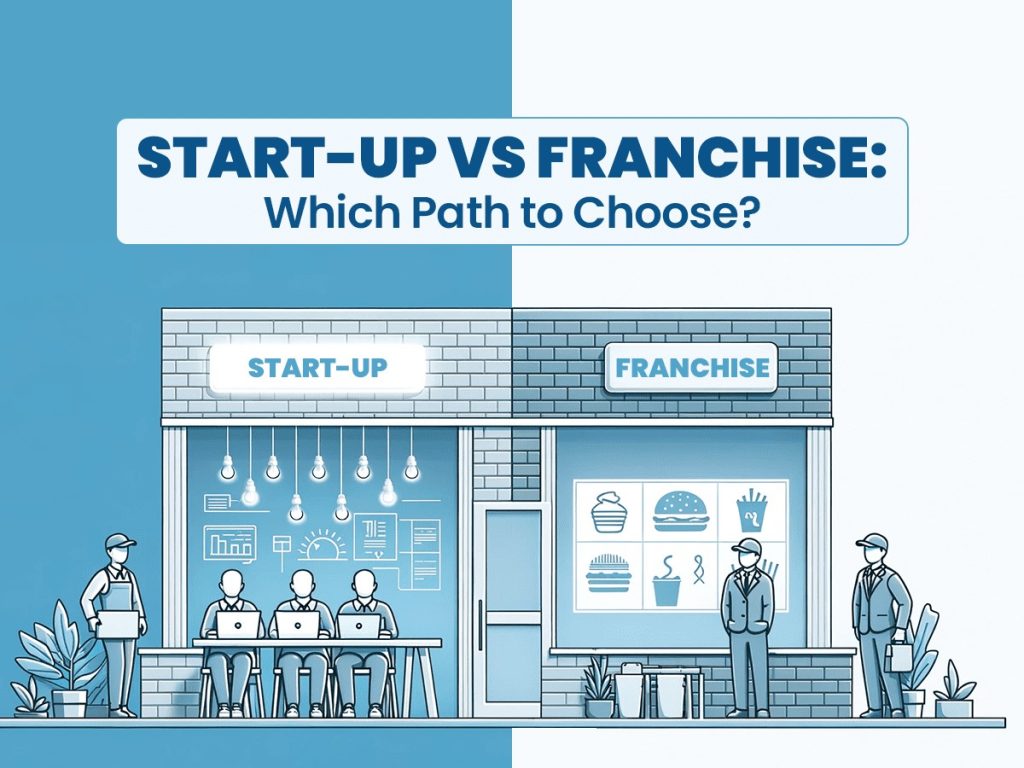
As you weigh your options, consider your goals and resources. Franchising often requires a substantial initial investment, along with ongoing fees. Conversely, starting from scratch may involve higher risks but also the potential for greater rewards. Additionally, understanding market demand and customer preferences can shape your decision. This exploration will help you assess which path aligns best with your vision.
In this discussion, you will gain insights into both franchising and starting a business. You will learn about their respective structures, financial implications, and long-term growth potential. By the end, you will be better equipped to make a choice that aligns with your aspirations.
Understanding Franchising
Franchising is a business model that allows individuals to operate a business using the branding and support of an established company. In this arrangement, a franchisee pays an initial fee and ongoing royalties to a franchisor in exchange for the right to sell products or services under the franchisor’s brand. This model provides a structured way to enter the market with reduced risks compared to starting a business from scratch. You benefit from the franchisor’s established reputation, which often leads to quicker customer recognition.
One of the primary advantages of franchising is brand recognition. When you join a well-known franchise, you immediately tap into an existing customer base. This can significantly enhance your chances of success. Moreover, many franchisors offer extensive support systems. They provide training, marketing assistance, and operational guidance. This support can help you navigate challenges more effectively than if you were launching a start-up alone.
In the context of franchising vs. start-up, it’s clear that franchising offers a distinct set of advantages. You gain access to proven business models and best practices, which can simplify your entry into the market. Additionally, the collaboration with the franchisor allows for shared resources and experience, further increasing your chances of success. Ultimately, understanding the structure and benefits of franchising can help you make informed decisions about your business future.
Starting a New Business
Starting a new business can be an exciting adventure. It allows you to express your creativity and pursue your passions. You have complete control over your vision, product, and operations. This autonomy often leads to innovative ideas that can disrupt markets. Moreover, you can shape your brand identity exactly as you envision it. You set your own goals and determine how to achieve them. However, these advantages come with significant challenges.
Launching a start-up also involves substantial risks. You face uncertainty regarding market acceptance and competition. Many new businesses struggle with financial stability, especially in their early stages. In fact, statistics show that a significant percentage of start-ups fail within their first few years. Consequently, you must be prepared to adapt quickly to changing conditions. This flexibility can be both an advantage and a challenge. Additionally, unlike franchising, which provides a proven business model, a start-up requires you to create and test your own strategies.
When comparing franchising vs. start-up, it’s essential to weigh the benefits of creativity and control against the risks involved. Starting your own business can be fulfilling and rewarding, but it demands dedication and resilience. Ultimately, you must evaluate your strengths, resources, and risk tolerance. This evaluation will guide you toward the best decision for your entrepreneurial path.
Financial Considerations
When considering financial aspects, franchising and starting a new business have different requirements. Franchising typically involves an initial investment that covers the franchise fee, equipment, and training costs. This investment can vary widely based on the brand and industry. Additionally, you will likely face ongoing fees, such as royalties and marketing contributions. These fees can reduce your profit margins but also provide valuable support and brand recognition.
In contrast, starting a new business usually requires a more significant upfront investment. You will need to cover costs like permits, inventory, and marketing. Unlike franchising, you have complete control over your expenses, but this can also lead to unexpected costs. Ongoing expenses, such as rent, utilities, and salaries, can accumulate quickly. You might also face challenges in generating consistent revenue in the early months or years.
When comparing franchising vs. start-up, it is essential to analyze potential profitability. Franchises often benefit from established customer bases and marketing strategies. This can lead to quicker returns on your investment. However, new businesses can potentially achieve higher profit margins by creating unique products or services. Your success will depend on your ability to manage expenses and attract customers. Ultimately, consider your financial situation and long-term goals to make an informed decision.
Market Research and Demand
When considering the choice between franchising and starting a new business, effective market research is essential. Understanding market needs and demand will help you make an informed decision. First, identify your target audience and their preferences. Use surveys, interviews, and online tools to gather data about what consumers want. Analyzing competitors can also provide insights into market gaps. This research will help you understand the demand for products or services in your chosen location.
In franchising, the brand often has existing market research. You can benefit from this knowledge and avoid the initial legwork of research. Established franchises typically have successful business models and customer bases. This can reduce your risk and increase your chances of success. However, it is still important to assess local demand for that franchise.
On the other hand, when starting a new business, you must conduct thorough market research yourself. This allows you to identify unmet needs and innovate accordingly. You have the freedom to create a unique product or service. However, you also face the risk of launching something that may not have sufficient demand.
When evaluating franchising vs. start-up, prioritize market research. This research will guide your decision and help you understand the potential success of your venture.
Support and Resources
When comparing franchising vs. start-up, the support systems available can greatly influence your decision. In franchising, you gain access to a well-established network. This network often includes training programs, marketing resources, and operational support. Franchisors provide guidance on everything from daily operations to financial management. You also benefit from brand recognition, which can help attract customers. This support reduces the challenges you may face when starting a business.
Conversely, launching a start-up requires a higher degree of self-reliance. You will need to develop your own strategies and systems. This means creating your brand from the ground up. You might find yourself researching every aspect of your business model. While this approach allows for creativity, it can also lead to uncertainty. You won’t have the same level of external support that comes with franchising.
Moreover, start-ups often depend on personal networks for support. You may rely on mentors or industry contacts for advice. This requires building relationships that can take time to cultivate. In contrast, franchising typically offers a built-in support system from day one. You can tap into a community of franchisees who share best practices and experiences.
In summary, consider the type of support you need when weighing your options. Franchising provides structured support, while a start-up offers independence. Ultimately, your choice should align with your comfort level and business goals.
Long-term Growth and Sustainability
When considering long-term growth and sustainability in the franchising vs. start-up debate, both options offer distinct advantages. Franchising presents a model that is often designed for scalability. With an established brand and proven systems in place, you can expand operations more easily. Many franchise models have the infrastructure to support multiple locations, allowing you to grow without reinventing your processes. This built-in scalability can lead to sustained profitability over time.
On the other hand, start-ups offer more flexibility in adapting to market changes. You have full control over the direction of your business and can pivot quickly to meet new demands. While this adaptability is an asset, scaling a start-up often requires significant investment in infrastructure and personnel. You’ll need to build your own systems to handle growth, which can be time-consuming and resource-intensive.
However, start-ups may offer greater potential for innovation. Without the constraints of a franchising model, you can introduce new products or services more freely. This can position you well in dynamic markets, where rapid changes in consumer preferences require swift responses. That said, long-term sustainability will depend on your ability to scale effectively while maintaining quality and efficiency.
Ultimately, the choice between franchising and a start-up comes down to your long-term goals. Franchising may offer a more structured path to growth, while a start-up provides more freedom to adapt. Your decision should align with your vision for sustainability and expansion.
Conclusion
In conclusion, the decision between franchising vs. start-up hinges on your goals and preferences. Each option presents unique advantages and challenges. Franchising offers brand recognition, support systems, and a structured growth path. You benefit from an established model that often leads to faster market entry. However, you might sacrifice some creative control in exchange for these benefits.
On the other hand, starting a new business provides you with the freedom to innovate. You have the ability to adapt quickly to market changes, which can be an asset in today’s fast-paced environment. This flexibility can foster creativity, but it often comes with greater risks. Building your brand and systems from the ground up requires a significant investment of time and resources.
Ultimately, your choice should align with your vision for the future. Consider your tolerance for risk, your desire for independence, and your long-term goals. By weighing these factors, you can make an informed decision that suits your aspirations. Whether you lean toward franchising or prefer a start-up, understanding these dynamics will help you move forward confidently.


